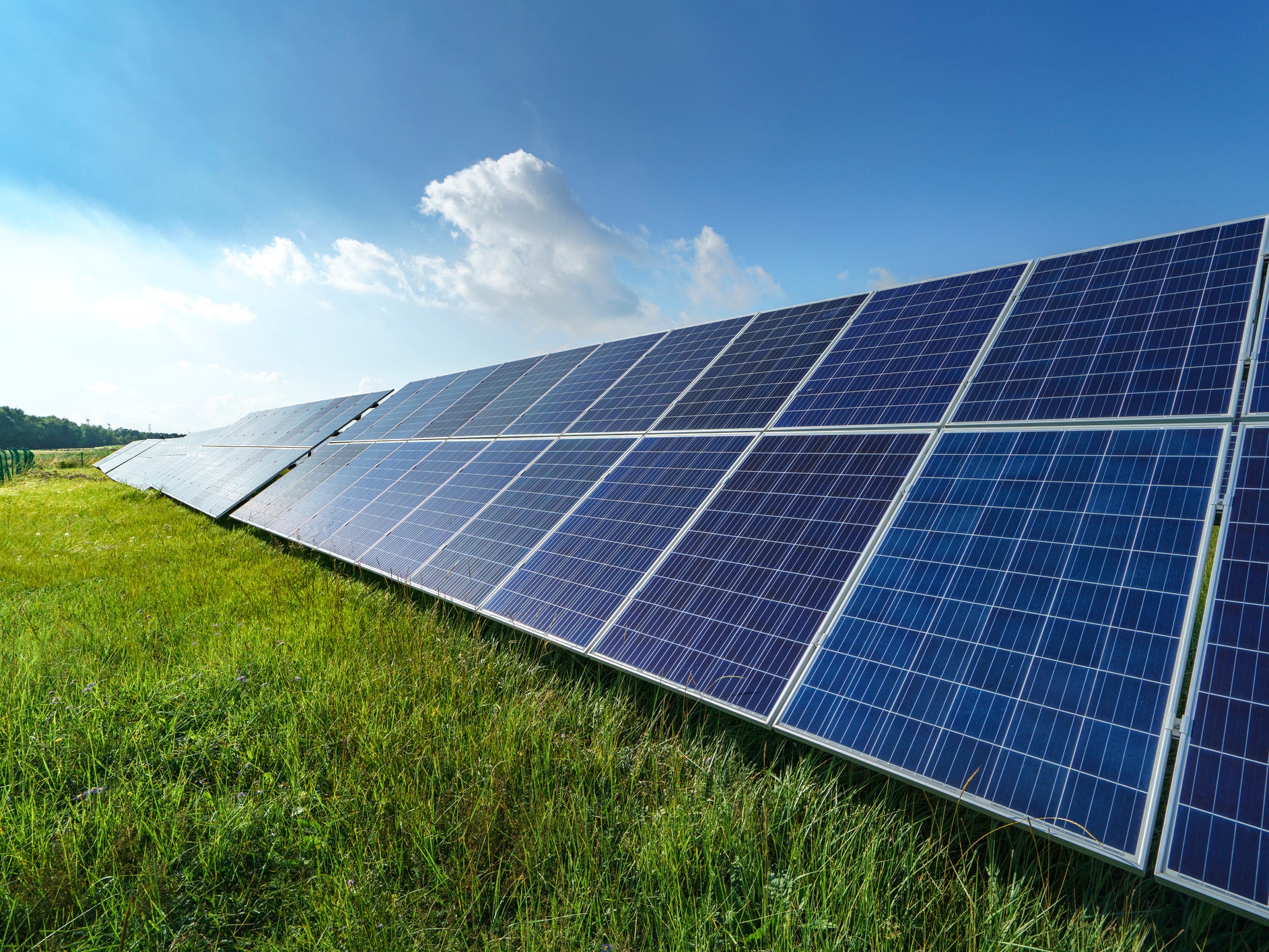Climate crisis: UK’s largest solar farm could be given go-ahead despite environmental and safety concerns
RSPB, Greenpeace and the Campaign to Protect Rural England have all raised concerns over large-scale project on Thames estuary

Your support helps us to tell the story
From reproductive rights to climate change to Big Tech, The Independent is on the ground when the story is developing. Whether it's investigating the financials of Elon Musk's pro-Trump PAC or producing our latest documentary, 'The A Word', which shines a light on the American women fighting for reproductive rights, we know how important it is to parse out the facts from the messaging.
At such a critical moment in US history, we need reporters on the ground. Your donation allows us to keep sending journalists to speak to both sides of the story.
The Independent is trusted by Americans across the entire political spectrum. And unlike many other quality news outlets, we choose not to lock Americans out of our reporting and analysis with paywalls. We believe quality journalism should be available to everyone, paid for by those who can afford it.
Your support makes all the difference.The UK’s largest solar farm, capable of delivering clean power to 91,000 homes, will be built on the north Kent coast if given the go-ahead by ministers this week.
The 900-acre Cleve Hill Solar Park, one mile northeast of Faversham and three miles west of Whitstable, would see the erection of 880,000 solar panels and is designed to reach a capacity of 350MW.
The plans also indicate that the project could also build one of the world’s largest energy-storage facilities to date – three times larger than the lithium-ion battery built by Elon Musk, the Tesla founder, in Australia.
The £450m project is expected to receive the green light from the Department for Business, Energy and Industrial Strategy (BEIS), which is headed by Alok Sharma.
Although the project promises large amounts of clean energy, the development of this part of the Thames estuary has been divisive for various reasons, including perceived risks to local people, the impact on the immediate environment and the visual impact on the landscape.
One of the key concerns has been the materials used to make the energy storage facility, which on its own will use 25 acres of land.
The Kent branch of the Campaign to Protect Rural England (CPRE) told The Telegraph: “The battery storage envisaged has caused fires and explosions around the world and CPRE is concerned that this application could be approved without any safety consideration being taken into account.
“The size of this storage is five times the current largest similar battery storage in the world and poses unacceptable risks. It is equivalent to 602 tons of TNT, which is a twentieth of the TNT equivalent of the Hiroshima atom bomb.”
The project has seen a divide between normally united organisations Friends of the Earth, which supports it, and Greenpeace, which has said it is opposed to the “industrialising of the countryside”, according to The Times.
Helen Whately, MP for Faversham, said the scheme would have a “devastating” impact and “would destroy an entire landscape” and has urged Mr Sharma to reject the proposal.
“I want to see us reach net-zero [greenhouse-gas emissions] by 2050, but this should not come at any cost,” she said.
Speaking about the safety concerns, Professor Sir David Melville, from the Faversham Society, which also is opposed to the farm, told The Telegraph: “It’s only a mile away from the local primary school and a couple of miles away from Faversham. This is far too big a risk to take at the level that we currently know about these batteries and their safety, and we haven’t had the reassurances that we need from the government.”
The RSPB has also opposed it. In a consultation document submitted to the government, the organisation said: “Considering the perilous state of nature, if we are to deliver on the UK government’s goal to be ‘the first generation to leave that environment in a better state than we found it’, we will need to make good decisions about land use.”
The Independent has contacted the developers Wirsol Energy and Hive Energy for comment. They have previously given assurances over the safety of the project and said it could bring £27.25m investment to local authorities over 25 years.
Emily Marshall, spokesperson for the developers, told The Telegraph earlier this month: “If built, it will be able to generate up to 350MW of clean, renewable electricity able to power over 91,000 homes. The project won’t require any government subsidies and aims to be one of the lowest cost generators of electricity in the UK.
“If built, it would also provide over £1m of revenue to Swale and Kent Councils each year for the lifetime of the project. The solar park will deliver a 65% increase in biodiversity on the intensively farmed site by including open grassland and meadow areas, hedgerows and woodland.”
Join our commenting forum
Join thought-provoking conversations, follow other Independent readers and see their replies
Comments